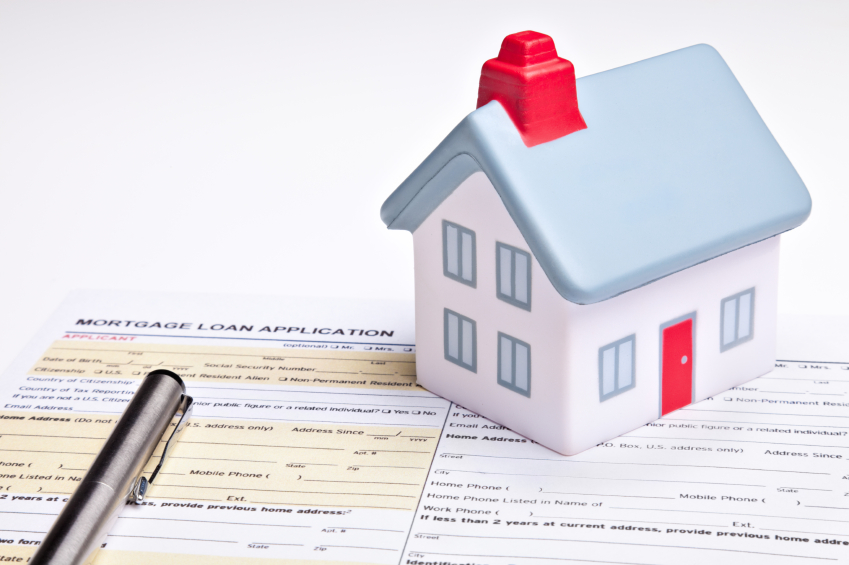
Jun 2, 2020
Having a good credit score is imperative as your credit score can be a factor in whether or not you are approvable for certain purchases and could affect opportunities. Credit scores are intended to help lenders, creditors and others make fair decisions on whether or not to “take a risk” on someone. The risk might involve giving that person a loan (will they repay it?), offering a credit card (will they make timely payments?) or approving their apartment rental application (will they pay their rent?).
Your credit score summarizes information from your credit reports and is calculated using information like your payment history, the amount of debt you have, and the length of your credit history, hard inquiries and other factors. Moreover, recent activities from your credit history have a greater influence on your credit score than activities from years ago.
Coming out of the COVID-19 pandemic, protecting or rebuilding your credit score will be an important tool in your financial recovery and strength. For that reason, if you can, pay all your bills on time and by the due date. Your payment history is the most important factor in your credit score.
If that might not be so easy for you right now due to COVID-19 hardship, try to pay what you can and make at least the minimum payments on your credit and utility accounts. A partial or minimum payment is better than late payment or no payment at all. Keep in mind that paying anything less than the minimum balance due is still considered a late payment.
Late payments on credit cards and loans are reported to the credit bureau and added to your credit report at least 30 days after the payment due date. When a late payment is reported to the credit bureaus, it will impact your credit score. Once a late payment goes on your credit report, it will be there for seven years, revealing your mistake to anyone who checks your credit report during that time period.
If you are having difficulties paying your minimum payments, instead of letting your score slip, inform your banks and lenders that you cannot make payments on time right now. Lenders will appreciate that you are giving them notice, they may allow you to delay or reduce payments without affecting your credit score at the same time. Many lending institutions have been offering relief programs and deferral payments to assist people who experience financial difficulties related to COVID-19. If you are charged some additional fees, make sure to understand any fee that may be involved with the relief program offered by your lenders, as well as how interest calculations may be affected. Most of the creditor and lender assistance programs will not have a negative impact on consumers’ credit standing.
If you have a mortgage, check if your mortgage includes an option that allows you to skip a payment, usually once a year, without repercussions for your credit score. You can also speak with your mortgagor to allow you deferral mortgage payment options tailored to your circumstances.
A significantly overdue cable/internet/phone or utility bills can also lead to negative marks on your credit report. However, utility companies usually offer more flexibility with late payments than other creditors and they do not report to credit bureaus directly.
Utility companies usually wait several months before turning your overdue balance over to a collections company. At that point, not only do you have to deal with annoying collection calls, but the agency usually reports the information to the credit reporting bureaus, which will likely cause you credit problems.
During the time of uncertainty, monitor your credit report and score. Regularly reviewing your credit report is a good habit to get into, regardless of the circumstances. Reviewing the report will help you understand your credit position, ensure accounts are being reported accurately, and possibly identify inaccurate or incomplete information.
You have the right to request free credit reports from each of the major credit bureaus.
You can find information on how to order your credit report from the Financial Consumers Agency of Canada for free on this link: https://www.canada.ca/en/financial-consumer-agency/services/credit-reports-score/order-credit-report.html.

Jun 2, 2020
With the COVID-19 virus and many uncertainties nested among us, we are likely going to see many changes in the real estate market as a result in the time to come.
Uncertainty surrounding the long-term effects of COVID-19 has paused real estate activities. The pandemic’s negative impact on business prosperity, job stability, investment portfolios and household income could be reflected in buying power to decline and increased supply over demand on both residential and commercial real estate markets.
During March and April, demand for residential rental units, whether long term leases or Airbnb, has declined substantially not only due to the physical distancing and travel restrictions but also due to a reduction in income, loss of jobs and uncertainty of job security. Many previously rented Airbnb units have been repurposed for the long-term rentals, which has brought the rental price down.
For those who invested in residential real estate for income, this can be a call for an adjustment. Less rental demand, lower rental price and rent defaults, may find many investors and landlords considering selling their investment properties.
For many who planned to step into the real estate market for the first time, dreams may be fading away. Savings have been diverted from the down payment to cover expenses and for the basic survival, and the ability to qualify for a mortgage could change for some of them. The hope for those will be reduced price of the real estate properties, proportionally smaller down payment and cheaper finance.
The impact of the COVID-19 on commercial real estate is expected to be more significant. We are likely to see rising vacancy levels and a decline in property values. With businesses closing temporarily or for good, downsizing their office or retail space, with tenants without a steady source of income to fund their obligations, many small property owners with mortgage obligations will most likely put their properties on the market to sell.
Even if it seems that COVID-19 has slowed down supply in the real estate market during March and April, it is only due to the impetus of restrictions imposed by the government. However, we may see very soon exactly opposite, a higher supply than demand as many property owners may be forced to sell for the reasons for avoiding mortgage default, paying down debt or even downsizing. As a result, we may see a reduction in the real estate price, some real bargain and a more affordable housing market.
On the bright side, the low mortgage rates are here to stay for a prolonged time. For the stable real estate investors looking to expand their real estate investment portfolio, the new real estate market conditions will represent an attractive and one of the lifetime opportunities.

Apr 2, 2020
If a mortgage broker is arranging your private mortgage for you, you can expect to pay a broker fee, since in this instance the lender does not compensate the mortgage broker for their work.
These fees are deducted from the mortgage money provided at the time of closing. You only pay these fees if you get your money. A responsible mortgage professional will advise you of all these costs upfront so that there are no surprises. This way, you can make your decision as to whether to proceed, with all the facts in front of you.
Typically, brokerage fees are 1-2%, depending on how complicated the financing is and the amount you borrow. The brokerage fees vary from broker to broker and from loan to loan.
Factors mortgage brokers consider are:
-
- The complexity and level of effort they anticipate are involved to fund your mortgage.
-
- The size of your mortgage. The smaller your mortgage, the larger the fee may seem like a percentage of the loan amount, and the larger the mortgage, potentially the smaller the fee may seem like a percentage of the loan amount.
In some instances, if the amount of borrowed money is small, a broker may charge you a minimum fee instead of the percentage.

Apr 2, 2020
At SAN Mortgages, we can help you find the right private lender to work with. We have a large network of experienced mortgage lending partners, and we can help you find the lender to work with you. We’ll help you gather the information you do need and do all the shopping and comparison for you. Then we’ll present you with the best options and walk you through deciding which would be best for your life. You won’t just see the “best” mortgage offer- you’ll see all the options we have to offer so that you can compare the benefits and challenges of each and weigh them against your own goals and circumstances.
And if your situation changes in the future, we can help you refinance for a better interest rate, using your new income verification or credit to access lenders that may not have been available to you before.
All you need to do in this case is contact us to review your options. At SAN Mortgages, we have financial experts who will recommend the best solution to your unique situation. Once we determine the best approach, we will then reach out to our network of over 50 financial institutions to discover the best rate for your second mortgage, refinance or loan. You will always have the best possible rate and financing options we can provide so that you will get the most advantageous mortgage rates in Ontario.
Contact SAN Mortgages at 1-855-SAN RATE (726-7283) or by e-mail Online to reach a mortgage expert who will help you organize your information, assess your needs and get you the best mortgage rates suitable to your circumstances.

Mar 6, 2020
Each private lender has their guidelines and comfort zones on how much they are willing to lend out based on the Property Type, Property Location, Down Payment/ Existing Equity, and the Applicant(s) ability to repay from an income standpoint. Applicant(s) credit holds little weight, but it is considered.
Typical private lenders guidelines are:
Property Type, Value and Location – When you apply for private financing, the property is qualified for the mortgage first and then just a few details about the client.
The property is the most important factor in being approved by a private lender. The property and location are what the lender is lending on. The mortgaged property must be in good condition and will have to undergo a strict appraisal before you are approved. If you have a poor credit score, you are considered a riskier client and lenders need to ensure that their investment is secure, in case you default on your mortgage.
Depending on the private mortgage lender, property location may be of significant importance. Some lenders specialize in rural and agriculturally zoned properties, land development, construction financing and blanket mortgages (a mortgage covering more than one property), while some lenders focus on major city areas with populations of 50,000.
When the risk is lower, a better rate can be obtained as well as a higher loan amount. For example in Toronto and GTA areas lending maximums are set at 80% of property value, while rural areas maximums may be set at 70 or 65%. Generally, this applies to both purchases and refinancing.
Each private lender has its own financing guidelines so do not expect all properties to be financed.
Equity or LTV % – With a private mortgage lender, the minimum loan-to-value ratio on the property is 85% regardless if you are purchasing or refinancing. That is, you need to have at least 15% of the equity in the property.
If purchasing, if you can afford to put in a higher down payment, it is advisable to do so, but at least you should put in a down payment of 15% to be approved.
A higher LTV % will drive a higher interest rate.
Credit – While it is very difficult to qualify for a mortgage with traditional lenders if your credit report shows credit impediments, or if you do not have credit at all, private lenders will consider your mortgage application regardless of your credit history.
Credit impediments can be recently discharged bankruptcies, paid or unpaid consumer proposals, collections, missed payments, judgement, written off debts, and consumer debt arrears.
Each private lender has its own requirements on the minimum credit score in order to consider approval. However, borrowers with lower credit scores possess more risks to lenders and thus the cost of the borrowing may be higher as well as the amount of approved loan.
Income – Your income determines how much you can borrow instead of whether or not you can borrow. There are many types of income that can be used to qualify you for a mortgage, but all income isn’t created equal. Although everything ends up as cash in your bank account, some types of income are stronger than others in terms of consistency and how easily it can be verified.
In general, your income can fall into one of two categories: confirmable and non-confirmable income. Confirmable income is preferred by lenders and is proven through Notice of Assessments (NOAs). Non-confirmable income, common among self-employed or commission-based employees, forces lenders to use an estimate of your income based on the average income typical of your employment.
Borrowers with non-confirmable income may have higher interest rates because they pose higher risks to the lender.





